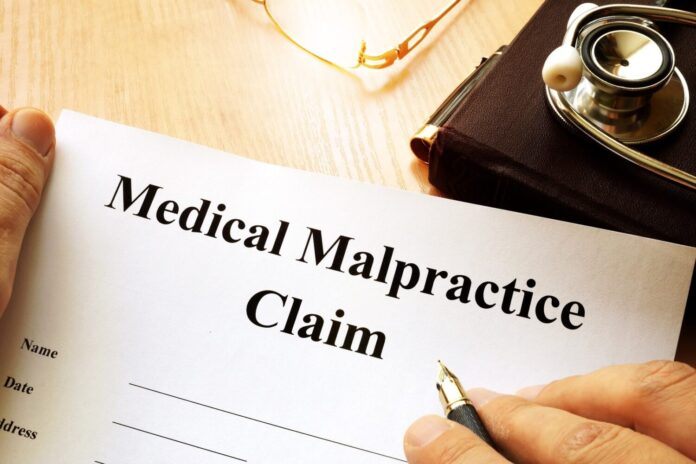Personal injury cases can result in devastating physical and emotional harm, causing financial burdens and long-lasting consequences for the victim. Personal injury settlements are vital in securing the proper compensation for those who have suffered due to another’s negligence or deliberate actions.
Michigan law outlines specific factors that judges and juries utilize to assess the type and amount of compensation that an injured party should receive. It is essential to note that each personal injury case is unique, and the amount of compensation awarded varies based on several variables specific to each case.
In this article, we will go over what types of damages you are able to claim for car or truck accidents in the state of Michigan and how they are calculated.

What Are the Types of Damages You Can Claim in Michigan?
In personal injury lawsuits in Michigan, the primary objective is to recover compensation for losses that arise due to the injury suffered. Such losses are known as “damages,” which can be categorized as actual or compensatory damages.
These damages are meant to cover the actual losses that result from the injury, such as medical bills, lost wages, and property damage. However, it is important to note that Michigan does not allow for punitive damages, which are designed to punish the party responsible for the misconduct.
Instead, such damages are only awarded if expressly authorized by statute. And, these damages are likely to be at the low end of the spectrum unless you have the help of a skilled personal injury attorney. For more information about obtaining the most amount of damages for your personal injuries in a truck accident, for instance, you can get a free consultation at Christensen Law and learn more information.
Until then, we will explain in more detail below about the two categories of damages that can be obtained following personal injuries.
Economic Damages
Economic damages refer to the financial losses that an individual experiences due to circumstances beyond their control. These losses can be caused by personal injury, property damage, or other incidents that result in a monetary setback.
In Michigan, economic damages can include loss of personal property, such as a car or home, and any associated costs for repairs or replacements. In addition, medical bills and other expenses, such as rehabilitation or physical therapy, can also be considered economic damages.
Lost wages from missed work, as well as future lost earning potential, may also be included in this category. Additionally, caregiving expenses, such as hiring a nurse or purchasing mobility devices, can be considered economic damages.
Finally, the costs of mileage to and from medical appointments can also be included. In essence, economic damages are any financial losses or expenses that an individual incurs as a result of their injuries or damage to their property.

Non-Economic Damages
Non-economic damages refer to losses or injuries that a person sustains as a result of a negligent act or wrongdoing but don’t have tangible financial value. These damages are often difficult to quantify and can have long-lasting effects on the victim’s life.
Victims of car or truck accidents, medical malpractice, or premises liability are examples of people who may receive non-economic damages.
Physical pain and suffering include the physical discomfort experienced by the victim, such as chronic pain, limited motion, and discomfort from surgical procedures. Emotional distress can refer to the trauma that the victim suffers, such as post-traumatic stress disorder or other psychological complications that disrupt their ability to live normally. Loss of quality of life pertains to the inability to perform routine daily activities such as work, hobbies, social activities, and other similar pursuits.
Understanding non-economic damages is crucial for those seeking compensation for their losses, as they often contribute significantly to the victim’s overall suffering beyond the immediate physical and financial aspects.
How Are Damages Calculated in Personal Injury Claims?
When it comes to personal injury settlements, there is no one-size-fits-all approach. Each case is unique with a varying degree of circumstances, injuries, and damages. While it may be tempting to seek online settlement calculators, it’s important to understand that they don’t consider the emotional toll an accident can have on victims.
When an individual is involved in an accident, they may experience physical and emotional pain and suffering, which can significantly affect their quality of life. Determining the proper compensation for these damages requires an experienced personal injury lawyer who can explain the nuances of the law and negotiate a settlement that best covers the victim’s losses.
Factors such as medical bills, lost wages, and property damage can be easily calculated and factored into the settlement. However, the pain and suffering damages are more subjective and challenging to calculate. These non-economic damages typically refer to the emotional and physical anguish a victim experiences, such as anxiety, depression, post-traumatic stress disorder, and loss of enjoyment of life.
Working with a skilled personal injury lawyer who can help victims receive fair compensation for their pain and suffering is crucial.

Michigan Statute of Limitations To Claim Damages
In the state of Michigan, specific time limits, known as the statute of limitations, must be adhered to if you wish to pursue legal action against a defendant. It is crucial to understand these limitations to ensure that you take advantage of the opportunity to seek justice for any injuries you might have sustained.
Below is a list of the various types of claims and their specific timeframe restrictions:
- Injury (or Damage) to Property: If you have suffered harm to your property, you have up to three years from the incident date to file a lawsuit.
- Personal Injury: The statute of limitations for personal injury claims is also three years from the date of the injury. It is essential to note that this time limit begins when you discover your injury or should have reasonably discovered it.
- Wrongful Death: For wrongful death cases, the statute of limitations is three years from the date the individual passes away. It is worth noting that, in some cases, the clock may not begin to tick until the cause of death is determined.
- Fraud: If you have been the victim of fraud, you have up to six years from the date that the fraud was committed to seek legal action.
- Medical Malpractice: Medical malpractice claims are governed by a strict two-year deadline. If you discover your injury after this time frame, you may still have six months to pursue a claim, but not longer than six years. It’s worth noting that, in some cases, the statute of limitations may be extended, such as in the case of minors or individuals with disabilities.
It is essential to consider these limitations when considering any potential legal action. Missing the deadline could bar you from seeking compensation or justice for any injuries or harm you have suffered.

To Wrap Up
In conclusion, personal injury victims in Michigan do not have to suffer alone. They have access to legal professionals who specialize in advocating for their rights and obtaining the compensation they deserve for their car or truck accident-related injuries. The process of seeking compensation can be complex and overwhelming, requiring expert guidance from attorneys well-versed in Michigan’s legal system. If you or someone you love has been injured due to someone else’s negligence, it’s important to seek the help you need.









